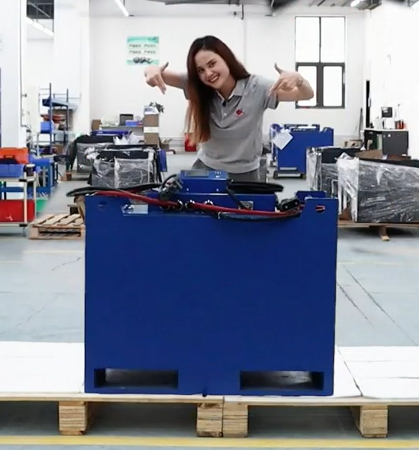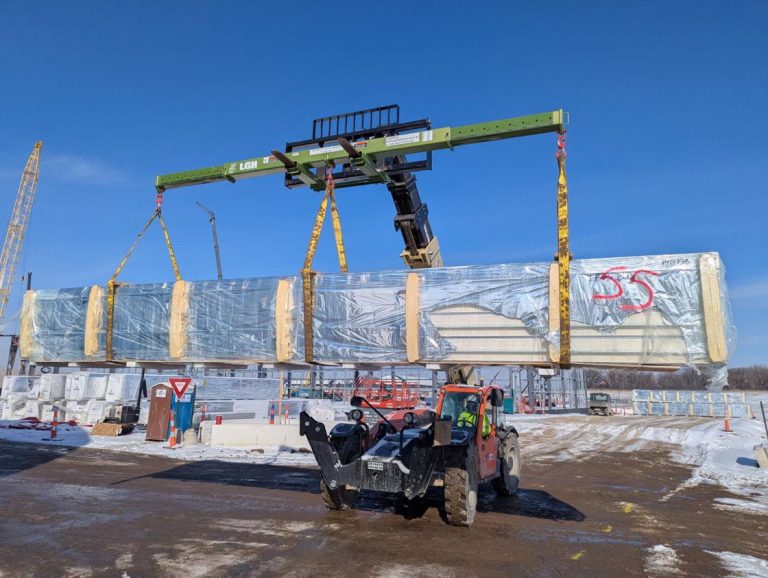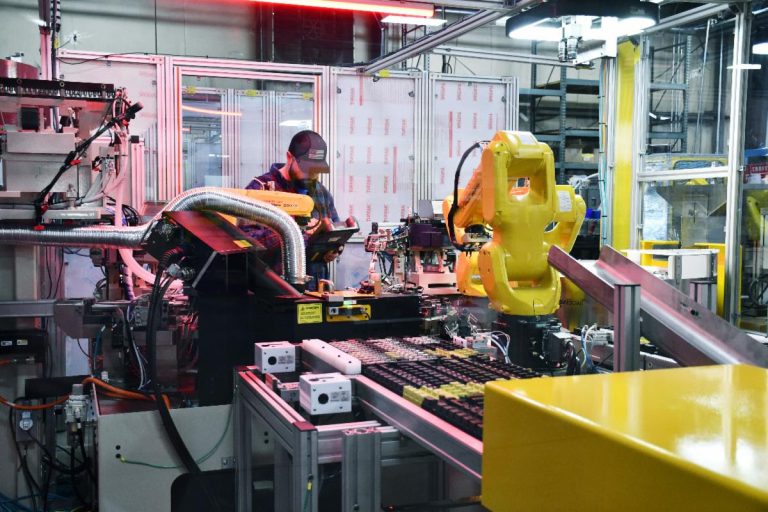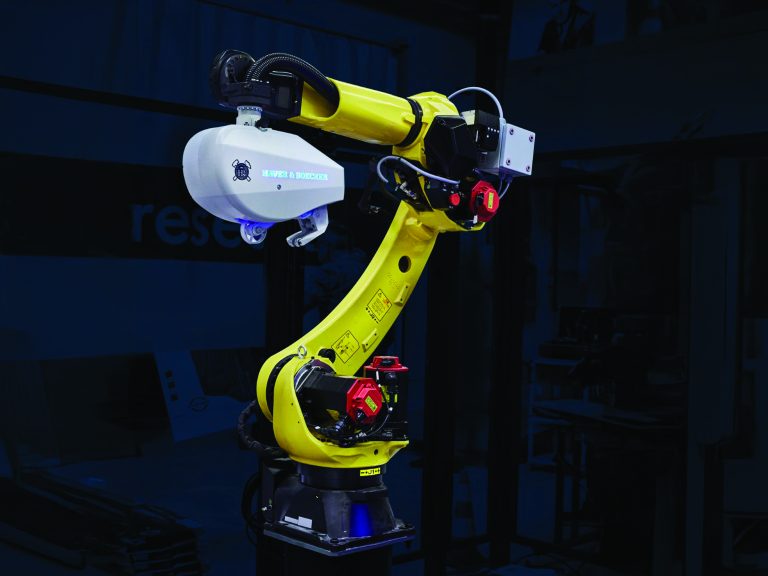The diversity in forklift lithium battery module design, chemistry composition, and form is what sets apart industrial lithium brands on the most basic level.
It is increasingly hard to choose the right forklift battery, given the variety of equipment types, makes, and models designed for specific applications, work environments, and operation paces.
To see through the sales pitch and make an informed decision, you need to understand the differences among cells. On the surface, all forklift batteries look the same. This article will help you to better understand what battery packs are made of.
So, what’s inside the “blue box”?
Types of Lithium Batteries: Lithium module Design
To help OEMs, BSLBATT has developed 43 standard modules for lithium batteries of different capacities, which can form parallel building blocks in forklift battery compartments. Up to 20 of these modules can be stacked in parallel, and the total capacity can be tailored to forklift OEM needs. The slotted design of BSLBATT lithium batteries allows them to be fitted in a range of configurations for a custom fit. Each module is individually controlled by advanced on-board computing systems to ensure continuous operating conditions of your forklifts in any environment.
What makes the BSLBATT the Superior Lithium Battery for your Motive Power needs? The answer is quality at every step. The BSLBATT Battery has been validated to over 60 industry quality and safety checks. It has multiple layers of monitoring, safety, and backup redundancies both in the module and the complete unit. The battery is designed and assembled in China., and its assembly facilities meet the stringent ISO 9001:2015 certification standards. In addition, BSLBATT is the first forklift lithium battery in China to obtain UL2580 certification for its complete product line. Maximum and safe transfer of energy is conducted through flexible copper busbar cabling.
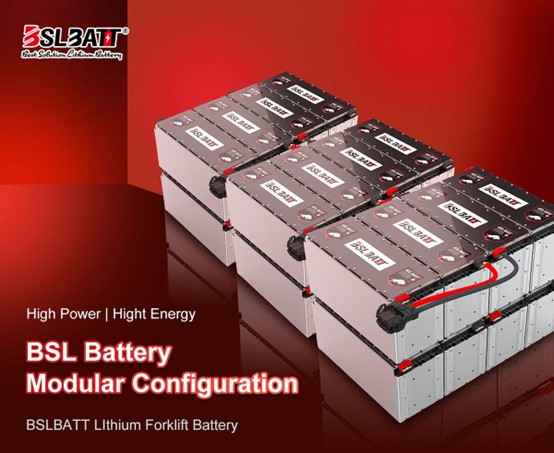
Read more about Lithium module Design.
Why LFP is the Best Choice for Material Handling Operations
Of all the various types of lithium-ion batteries, three cell chemistry types are widely used in on- and off-highway electric vehicles: lithium iron phosphate, or lithium ferro phosphate (LFP); lithium nickel manganese cobalt oxide (NMC); and lithium nickel cobalt aluminum oxide (NCA).
A battery’s longevity, or its cycle life, depends on three main factors:
- Chemical composition of cathode materials
- Ambient temperature of operation
- Depth of discharge
 All batteries degrade with usage, decreasing their Ah capacity with each charge/discharge cycle. In material handling, batteries usually become unusable when they drop below 80% of their nominal capacity. This graph shows the results of recent independent degradation tests of the aforementioned three types of cells with different chemistry, under equal conditions of temperature and depth of discharge. LFP lithium batteries exhibit superior performance compared to NMC—they offer a longer lifespan and are generally less expensive. Lithium nickel cobalt aluminum oxide (NCA) batteries performed similarly to or worse than NMC.
All batteries degrade with usage, decreasing their Ah capacity with each charge/discharge cycle. In material handling, batteries usually become unusable when they drop below 80% of their nominal capacity. This graph shows the results of recent independent degradation tests of the aforementioned three types of cells with different chemistry, under equal conditions of temperature and depth of discharge. LFP lithium batteries exhibit superior performance compared to NMC—they offer a longer lifespan and are generally less expensive. Lithium nickel cobalt aluminum oxide (NCA) batteries performed similarly to or worse than NMC.
Why BSLBATT uses LFP?
BSLBATT Battery makes the most stringent demands on the safety and quality of all components to ensure top performance and long cycle life for our lithium batteries. We have reached a strategic cooperation agreement with the most technologically advanced and reliable manufacturer of lithium cells in 2020 to guarantee our battery supply. We work with cells with different chemistry, including LFP, NMC, and others, but focus mostly on LFP technology as the optimal choice for material-handling applications.
Types of lithium batteries: lithium cell format
Main lithium battery pack components
Currently, there is no standardized design for a lithium-ion battery (LIB). The battery cell type is selected according to a user’s needs, which ultimately influences the design of the battery module. The present LIB market most often provides a 3-tier battery concept to customers: cell, module, and pack.
Cell shapes
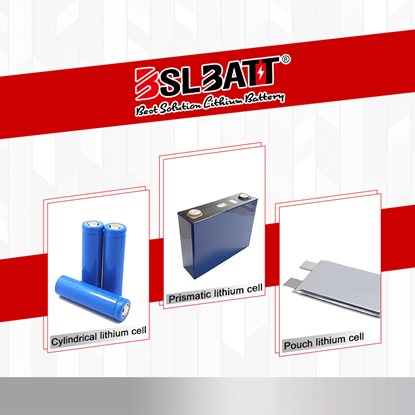 Battery cells are designed in different form-factors and shapes: cylindrical, prismatic, and pouch cells. The inner structure and the electrode-separator compound differ in terms of the material dimensions and the manufacturing processes used.
Battery cells are designed in different form-factors and shapes: cylindrical, prismatic, and pouch cells. The inner structure and the electrode-separator compound differ in terms of the material dimensions and the manufacturing processes used.
Read more about the technical comparison of cylindrical, pouch, and prismatic battery cells.
Prismatic batteries are the best choice for forklift batteries
The differences in battery technology today allow customers to choose the best fit for their applications. Thus, lithium prismatic cells are the preferred technology for material handling equipment (MHE):
- Hundreds of Ah nominal capacity. The technology provides the best ratio of power and energy per volume unit. This is especially important in the high-capacity, high-current, and relatively low-voltage batteries used in MHE.
- Optimal utilization of available pack space. There are no space cavities between the cells. This allows maximum capacity for the battery pack and still has enough room to accommodate for required extra weight, sealing, heater, an internal charger, or other battery upgrades within the battery compartment’s limited area.
- Contacts are strong enough for reliable bus-bars connection. This is a hugely important safety factor with high vibration operations, especially in cushion-tire-type lift trucks.
- Flexible battery weight. LIB pack weight is not a limitation for most of the MHE in terms of its range per one charging (unlike passenger EVs). Forklifts operate mostly near their charging stations and their batteries are often engineered as a counterweight.
BSLBATT senior sales Soma Liu brings you a magic show of what’s in the blue box. With the Soma Liu action, the forklift lithium battery module, PDU board, battery interface, and BSL battery seem to be assembled consciously Get up! Learn more about this impressive industrial battery by watching this video:
Get the most out of your fleet with lithium-ion technology
The right power source underpins everything you do. BSLBATT has the resources and intelligence to not only identify it but provide it as well. Having access to expert insight and proven experience has become a need, not a luxury. BSLBATT Battery is that essential resource – a team of industry experts, all committed to partnering with you to pinpoint the Lithium forklift battery that can help address your specific materials-handling needs.

